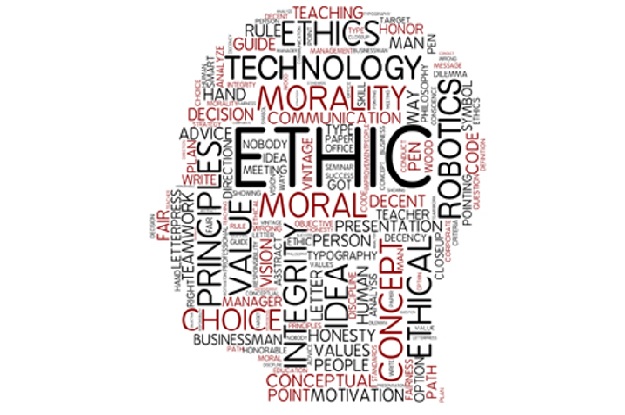Artificial intelligence technologies are transforming industries, raising complex ethical questions that intersect with intellectual property (IP) litigation. Software expert witnesses play a critical role in addressing these issues, particularly when disputes involve the ethical implementation of artificial intelligence systems. This article explores the ethical implications of artificial intelligence, how machines might develop ethical behavior, and why this matters for IP litigation attorneys.
Defining Ethics in the Context of Artificial Intelligence
Ethics, as defined by the Markkula Center for Applied Ethics, involves standards of right and wrong that guide human behavior in terms of rights, obligations, societal benefits, fairness, and virtues. The Internet Encyclopedia of Philosophy further explains ethics as the systematic study, defense, and recommendation of right and wrong conduct. Unlike laws, ethics are not codified but shaped by individual experiences, cultural norms, and societal values. This variability poses challenges for programming ethical behavior into machines, a key issue in IP disputes where software functionality and compliance are scrutinized.
For IP litigation attorneys, understanding ethics in artificial intelligence is essential when evaluating cases involving software patents, trade secrets, or copyright infringement. A software expert witness can analyze whether an artificial intelligence system adheres to ethical standards, which may influence liability or damages in litigation.
Programming Ethics into Machines
Unlike humans, who develop ethics through lived experiences, computers rely on programmed instructions or artificial intelligence algorithms. Traditional programming uses rigid algorithms, but artificial intelligence allows systems to learn from examples, mimicking human learning processes. However, teaching machines ethical behavior requires translating human ethics into explicit rules—a complex task given the diversity of ethical norms across cultures and regions.
For instance, the Massachusetts Institute of Technology (MIT) conducts the Moral Machine experiment, which examines human perspectives on ethical decisions made by autonomous systems, such as self-driving cars. The study presents moral dilemmas, like choosing between saving two passengers or five pedestrians, to gather data on ethical preferences. Such experiments highlight the need to codify ethical rules for machines, a process that can be central to IP litigation when disputes arise over the design or use of artificial intelligence algorithms.
A software expert witness can provide testimony on whether an artificial intelligence system’s ethical programming aligns with industry standards or infringes on patented processes, offering clarity in complex IP cases.
Ethical Diversity and Localization
Ethical norms vary significantly across continents, countries, and even local communities. This diversity complicates the development of universal ethical standards for artificial intelligence systems. For example, what is considered ethical in one region may be unacceptable in another, affecting how software is designed and deployed. In IP litigation, these differences can impact cases involving international patents or cross-border software licensing agreements.
Attorneys may rely on a software expert witness to assess whether an artificial intelligence system’s ethical framework complies with the legal and cultural expectations of the relevant jurisdiction. This analysis can be pivotal in determining whether a system’s design infringes on IP rights or violates contractual obligations.
The Future of Artificial Intelligence Ethics in Litigation
The ethical development of artificial intelligence systems has far-reaching implications. As noted by physicist Stephen Hawking in a 2014 BBC interview, unchecked artificial intelligence could pose existential risks. However, with careful programming, humans can instill ethical behavior in machines. Some experts view this as an engineering challenge, requiring rigorous testing and quality assurance to ensure ethical outcomes.
In IP litigation, ethical considerations can influence cases involving defective software or misappropriated algorithms. A software expert witness can evaluate whether a system’s ethical programming was adequately designed or if it contributed to IP violations, providing critical insights for attorneys.
Practical Implications for IP Litigation
For IP litigation attorneys, artificial intelligence ethics are not just theoretical. Disputes often involve questions of whether a system’s behavior aligns with patented processes, trade secret protections, or licensing agreements. A software expert witness can dissect complex artificial intelligence code to identify potential infringements or compliance issues, translating technical details into actionable legal arguments. Additionally, ethical missteps in software design can lead to reputational damage or regulatory scrutiny, further complicating IP disputes.
Understanding the interplay between artificial intelligence ethics and IP law is crucial for navigating modern litigation. Attorneys can benefit from consulting experts who specialize in both technical and ethical aspects of software development.
Get Expert Guidance
Navigating the complexities of artificial intelligence ethics in IP litigation requires specialized expertise. Sidespin Group offers artificial intelligence expertise to guide projects and ensure compliance with ethical and legal standards. For assistance with AI strategy or IP litigation support, visit Sidespin Group to connect with experienced professionals.

